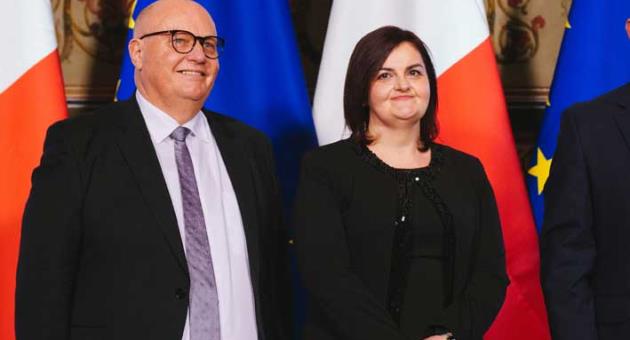
An anonymous correspondent writing on Simon Mercieca’s blog asks a pertinent question. Why is the Attorney General’s office “losing one trial after the next”? Put properly the question might give a clearer picture of its importance. Why is Malta failing to convict so many people it brings to trial?
The question is pertinent because its premise is correct. Too many trials end in acquittals. Without going into the merits of any one of those cases acquittals are an indication of a failure at some point in the process. Either an innocent person has been tried, which means they have been taken through an ordeal for nothing, or, less tragically perhaps, a guilty person has managed to get away with it.
Either way, when the prosecution’s failure rate is so high, we inevitably lose confidence in the justice system altogether. If innocent people are tried, or guilty people are wrongfully acquitted, and this happens consistently, our confidence in the safety of convictions that actually do occur is bound to be shaken.
That’s not a happy place. It puts into question the rule of law because the state fails in its primary duty to protect law-abiding citizens from those who break the law.
You must be wondering how it is that it seems that Simon Mercieca has published something with which I sound to be in agreement. Wait for the other shoe to drop.
The anonymous correspondent blames the abysmal record of the prosecutor’s office on Deputy Attorney General Philip Galea Farrugia. Galea Farrugia is a favourite target of Simon Mercieca’s for entirely transparent reasons. Philip Galea Farrugia is prosecuting Yorgen Fenech and Simon Mercieca is Yorgen Fenech’s unlicensed lawyer outside the court. Simon Mercieca has been and will continue to try to undermine Philip Galea Farrugia and anyone whose actions and work might prevent Mercieca’s boss, Yorgen Fenech, from walking free.
The reality is Philip Galea Farrugia is only responsible for his personal performance. The prosecution service is much bigger than he is. If one were to take a shot in the dark and try to determine where the failing really is, a more obvious place to start would not be the Deputy Head of the prosecution service but its Head, the Attorney General, now Victoria Buttigieg, and for many years before her the redoubtable Peter Grech.
Why are prosecutors performing badly? Mostly because most of them are inexperienced. A prosecutor who has seen 40 summers is a rare sight. Many of the more experienced prosecutors are now judges and magistrates picking apart weak cases filed by their successors in the prosecutor’s office doing work they would have considered sloppy in their time.
With the attrition of experienced prosecutors retiring or transferred to the judicial branch, most of the rest of the cohort left prosecuting cases is made up of young ’uns recruited soon after university. Most of them sign up fully intending to leave the AG’s office soon after to join or form a private practice within a few years.
The issue is hardly low pay. Lawyers at the AG’s office are paid reasonably well, certainly very well when considering the age and experience of most of them. But after acquiring experience and exposure many of them switch sides and work as defense attornies.
There is, in principle, nothing less noble about representing defendants. But representing the people of Malta is, at least in the present, a vocation unheeded by most.
This is both sad and dysfunctional. There’s a call for lawyers to join the Attorney General’s office which is open as we speak. Prosecutors are required to have a warrant as Advocates, and all of one year of experience practicing the profession.
One year.
That’s like calling for heart surgeons at the public hospital and asking doctors to prove they’ve been doctors for a year.
In sum, therefore, the AG’s office has become, as a combined result of poor succession planning and alienation of experienced recruits, a form of highly-paid apprenticeship for new lawyers joining the profession.
The effect of this is that as a country, as law-abiding citizens, we are being poorly represented and poorly served. Whatever goodwill they may have, prosecutors lacking experience, not to mention years under their built working as mentees of other experienced trial lawyers, can rarely match the resources and experience of lawyers in private practice representing people that deserve to be convicted.
Criminals want nothing better than their prosecution to be conducted by error-prone beginners. Yorgen Fenech would be right pleased if Philip Galea Farrugia is replaced in his case by a newbie wading way out of their depth.
Although there’s always room to improve salary conditions and the career attractiveness of a position, it seems clear that more money and better offices are not going to be enough for our state to have a prosecution service that can secure important convictions in our fight against crime. We need a better plan.
Representing Malta’s state, risking one’s safety and life to fight for it, taking up arms against the mafia, choosing duty over privilege and public service over personal profit, doing the right thing when the temptation of corruption and collusion or the threat of violence and retribution are hung as alternatives, are values that are hard to come by in many professions in this country today.
Working as Malta’s lawyer should be a patriotic duty many people strive for. Instead, we think patriotism is about throwing things at black people in the street.